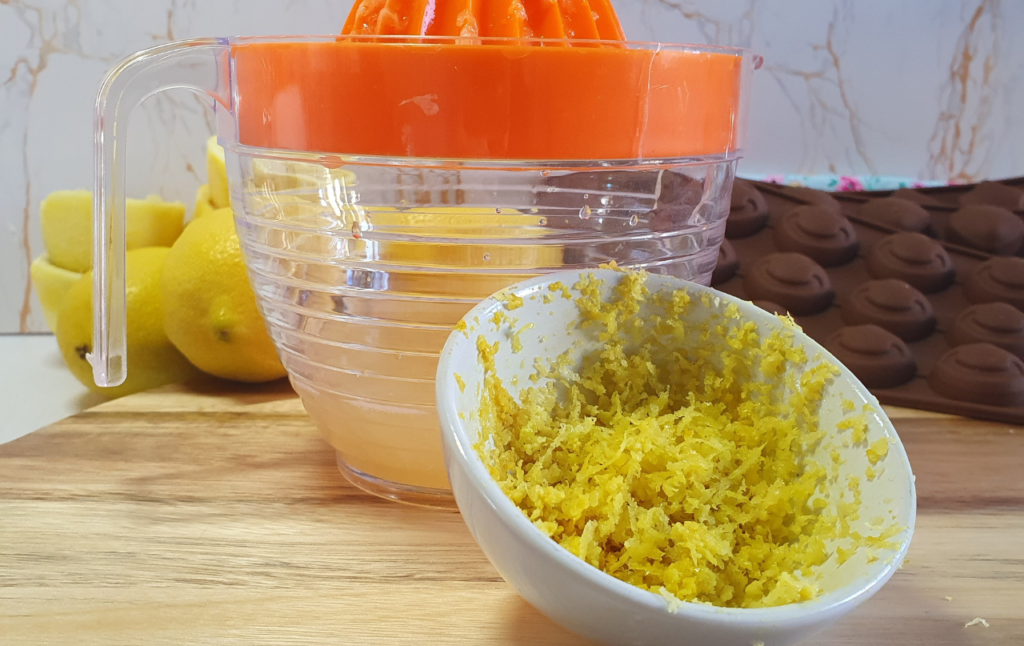Lemons are a citrus fruit known for their acidic taste and tart flavor. However, they also contain a variety of health benefits that can improve overall well-being. Lemon zest, the outer layer of the lemon, is often overlooked but is also a valuable source of nutrients. In this article, we will discuss the various health benefits of both lemon and lemon zest and how to store them.
Nutritional Information of Lemon and Lemon Zest
Lemons and lemon zest are low in calories and high in nutrients. One medium-sized lemon contains only about 20 calories but provides over 50% of the recommended daily intake of vitamin C. Lemon zest, the outer layer of the lemon, contains even higher amounts of vitamins and minerals, including vitamin A, calcium, and potassium.
Lemons are known to be among the healthiest fruits in the world, packed with vitamin C. However, did you know that the fruit’s outer yellow peel also has some amazing health benefits? In fact, the peel itself contains 5 to 10 times more nutrients than the fruit’s juice, so you shouldn’t ever throw this away.
10 Facts to Know about Lemon Zest
1.Boosts Immunity
Lemon and lemon zest are excellent sources of vitamin C, which is essential for a healthy immune system. Vitamin C enables stimulate the production of white blood cells, which are responsible for fighting off infections and diseases. Drinking lemon juice or adding lemon zest to your meals can help boost your immune system and reduce the risk of infections.
2. Bone Health
To strengthen the bones and prevent bone-related disorders like osteoporosis or arthritis, combine grated lemon zest with cold water and let it steep overnight in the refrigerator. This beverage is also rich in vitamin C.
3.Aids Digestion
Lemon and lemon zest are also beneficial for digestion. The acidic properties of lemon juice can help stimulate the production of digestive juices, which can improve the absorption of nutrients from food. Lemon zest contains compounds that promote the growth of beneficial gut bacteria, which can help maintain a healthy digestive system.
4.Promotes Weight Loss
Lemon and lemon zest may also aid in weight loss. The high levels of vitamin C and antioxidants in lemon can help boost metabolism and promote fat burning. Additionally, lemon water can help reduce appetite and cravings, leading to lower calorie intake.
5.Improves Heart Health
Lemons and lemon zest contain compounds that can improve heart health. The high levels of vitamin C and antioxidants can help reduce the risk of heart disease by reducing inflammation and oxidative stress. The natural oils in this lemon zest aid to reduce cholesterol levels and blood sugars.
6.Reduces Inflammation
Lemon and lemon zest have anti-inflammatory properties that can help reduce inflammation in the body. Chronic inflammation has been linked to the development of many diseases, including cancer, diabetes, and heart disease. The antioxidants in lemon and lemon zest can help reduce inflammation and protect against disease.
7.Enhances Skin Health
Lemon and lemon zest can also improve skin health. The high levels of vitamin C in lemon can help stimulate collagen production, which is essential for healthy skin. Lemon juice can also help reduce acne and improve skin tone by reducing hyperpigmentation.
8.Lowers the Risk of Kidney Stones
Lemon juice has been shown to reduce the risk of kidney stones by increasing urinary citrate
9.Improves Dental Health
Lemon and lemon zest can improve dental health. The antibacterial properties of lemon can help kill the bacteria that cause bad breath. Additionally, the vitamin C in lemon can help prevent gum disease by strengthening the connective tissue in the gums.
10.Prevention of Cancer
Salvestrol Q40 and limonene, two natural compounds found in lemon zest, aid in battling cancer cells. Simply add 2 lemon ice cube in boiling water to create a strong herbal tea, add honey and enjoy!
How to store lemon?
Lemons should be stored in a cool, dry place away from direct sunlight. They can be stored at room temperature for a few days or in the refrigerator for up to four weeks. If you plan to store lemons in the refrigerator, place them in a plastic bag or airtight container to prevent moisture loss and keep them from absorbing any odors from other foods.
Additionally, you can also freeze lemons by slicing them into rounds or quarters and placing them in a single layer on a baking sheet. Once frozen, transfer the lemon slices to a freezer-safe bag or container and store them for up to six months.
My favorite way to store lemons !!!

Grate the lemon peel, add the lemon juice to chocolate silicone moulds and place them to the freezer.
The ideal amount of Lemon ice cube for a cup of tea is 1/2 or 1 cube. You should test your preferred flavour. Two ice cubes are perfect for lemon water.
Precautions and Side Effects
While lemon and lemon zest are generally safe to consume, they can cause some side effects in certain individuals. The acidic properties of lemon can cause irritation or damage to tooth enamel if consumed in excess. Additionally, individuals with gastroesophageal reflux disease (GERD) or other digestive disorders should consume lemon in moderation to avoid aggravating their symptoms.
Conclusion
Lemon and lemon zest are not only delicious but also have numerous health benefits and uses around the home. They are low in calories but high in nutrients and antioxidants. Adding lemon or lemon zest to your diet can boost your immune system, aid digestion, promote weight loss, improve heart health, reduce inflammation, enhance skin health, and more.
FAQs
Can I eat lemon zest?
1. Yes, lemon zest is safe to eat and can add flavor and nutrition to your meals.
How much lemon juice should I drink a day?
2. It is recommended to consume no more than 4 tablespoons of lemon juice a day to avoid any negative side effects.
Can lemon help me lose weight?
3. Yes, the high levels of vitamin C and antioxidants in lemon can help boost metabolism and promote fat burning, which can aid in weight loss.
Can lemon juice damage my teeth?
4. Consuming lemon juice in excess can cause irritation or damage to tooth enamel. It is recommended to dilute lemon juice with water or drink it through a straw to minimize contact with teeth.
Can I use lemon essential oil for aromatherapy?
5. Yes, lemon essential oil can be used in aromatherapy to promote relaxation and improve mood. However, it should not be applied directly to the skin as it can cause irritation. It should be diluted with a carrier oil before use.






